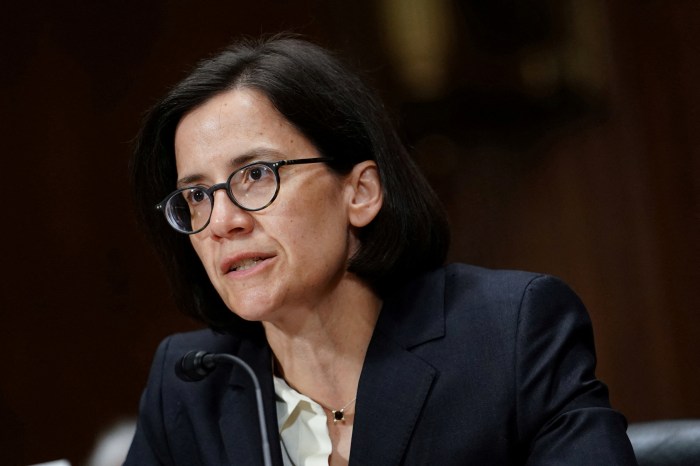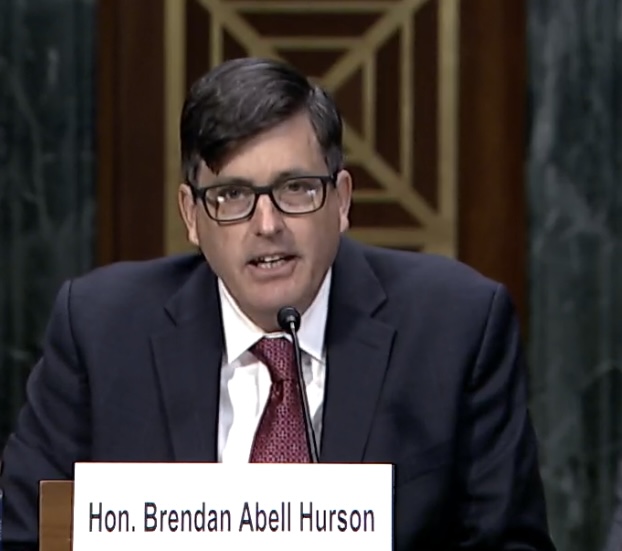The National Center for Transgender Equality (NCTE) and Transgender Legal Defense and Education Fund (TLDEF) are merging into one organization called Advocates for Trans Equality, the two non-profits announced on Jan. 17 in a joint announcement.
The merger, which comes at a time when transgender and non-binary individuals are facing fierce headwinds in American politics, will combine two major transgender advocacy organizations with different focus areas but one shared goal of advancing trans rights. TLDEF has worked to advance trans rights and LGBTQ rights through a legal lens, including impact litigation and education, while NCTE is a key player on Capitol Hill and has utilized the political arena to advocate for the community’s needs. Both organizations were founded in 2003.
TLDEF is also known for initiatives such as the Trans Health Project, which advocates for improvements to trans-related care and helps to educate trans individuals about their legal rights in the healthcare realm, as well as the Name Change Project, which offers free legal name change services to low-income transgender, gender non-conforming, and non-binary individuals.
NCTE, on the other hand, has played a major role in national efforts to improve trans rights through policy changes and research while also leading several projects such as Families for Trans Equality, a Racial and Economic Justice Initiative, and a Trans Legal Services Network.
The news of the merger was announced in an email on Jan. 17 and first reported by NBC News.
NCTE is based in Washington, DC, while TLDEF is headquartered in New York City. The new organization will feature offices in both of those cities, though many employees are expected to continue working remotely.
Andy Marra, who has led TLDEF since 2018 and previously served in posts at organizations including GLSEN and GLAAD, will be the new organization’s CEO, while NCTE executive director Rodrigo Heng-Lehtinen will keep the same title he had at NCTE. Heng-Lehtinen, formerly the deputy executive director at NCTE, took over in 2021 following the departure of founding director Mara Keisling, who spearheaded the organization for nearly two decades.
Speaking to Gay City News on Jan. 17, Marra stressed that both NCTE and TLDEF “are doing very healthy” and would have been able to continue to develop and grow independently, but she said the unprecedented attacks on trans rights demand a more robust response.
The final straw for Marra came in 2022 when the State of Texas, led by Governor Greg Abbott and Attorney General Ken Paxton, started investigating families of trans youth who were receiving gender-affirming care.
“Our movement had never seen this kind of escalated and invasive action encouraged by our opposition and those who oppose trans people, and it was in that moment I realized we needed to do something bold and different,” Marra told Gay City News.
Shortly after the Texas news dropped, Marra said she held “frank conversations” with TLDEF’s board about the idea of merging with NCTE, and the board went on to give her consent to engage in an exploratory conversation with Heng-Lehtinen. She took the Amtrak from New York to Washington to establish a dialogue.
“I met him at his home to start this conversation and see if there was similar interest and desire to consider this move, and to my surprise, he immediately understood the vision behind this proposal,” Marra said. “So both of us engaged in a series of additional conversations, and after two years of really careful contemplation and planning, we are proud to announce our two organizations have merged.”
With an eye on the future, Marra emphasized the benefit of combining TLDEF’s legal expertise with NCTE’s policy background at a critical juncture in the trans rights movement.
“Those two functions in our movement have never had the benefit of operating under one roof,” she said.

Heng-Lehtinen underscored the shared vision of NCTE and TLDEF in a written statement on Jan. 17.
“NCTE and TLDEF already have a long history of partnering to fight for the legal rights and protection of transgender people,” Heng-Lehtinen said. “Even though we’ve achieved many victories over that time, it feels like it was just a warm-up for the journey ahead. With a record number of attacks on trans people and trans rights, now is the time to unite and use our combined power and influence to advance trans equality in bigger and bolder ways than our organizations could alone.”
The merger, Marra insisted, will allow for enhanced coordination, more efficiency, and the opportunity to utilize additional resources “now and in the long haul for our community.” Marra said the long-term stability of Advocates for Trans Equality is especially critical because the trans rights movement has long been underfunded.
“We think this is going to create a deeper bench for leadership development in the trans rights movement and will create an organization that will stand the test of time in making sure that our movement continues to advance progress and continues to hold the line,” she said.
Another similarity between NCTE and TLDEF is that they both underwent labor movements in recent years that resulted in union representation for workers. The 2021 union drive at TLDEF featured complaints from employees who sought better benefits and said they were denied necessary gender-affirming surgeries under their healthcare plan. TLDEF leadership quickly vowed to recognize the workers’ union, the Union of Legal Workers for Trans Liberation, represented by the Association of Legal Aid Attorneys. That same year, NCTE also recognized its workers’ NCTE United union, represented by the Nonprofit Professional Employees Union.
Marra said employees were assured that they would maintain their union representation, and a FAQ page on TLDEF’s website states that the new organization “will absolutely continue to support labor unions, and all employees who are union members will maintain their union status.”
“We have been very clear and up front about our intentions with our bargaining units that no one is losing their jobs,” Marra explained before adding that the new organization’s leadership is “prepared to engage in bargaining when material changes occur to jobs and working conditions.”
“At TLDEF we have a deal in place we negotiated with our bargaining unit,” Marra said. “For NCTE, they’re still bargaining but both sides have made clear that yes, we are still moving forward with the merger and our unions have a place at the table, as well.”
Union representatives for NCTE and TLDEF workers did not respond to a request for comment on Jan. 17.
Looking ahead, Marra conceded that the urgent priorities of the moment have absorbed much of the energy, limiting the ability to plan for the long-term future. But she knows 2024 is pivotal given the upcoming elections and the ongoing attacks on the trans community.
“This is about the future long-term movement for trans rights,” Marra said. “I think it’s incredibly important to say this organization is not going anywhere and our intent is to make sure we secure a brighter and lasting future for trans people in this country.”
The merger should be finalized by the summer, pending regulatory approval, according to NCTE.



































